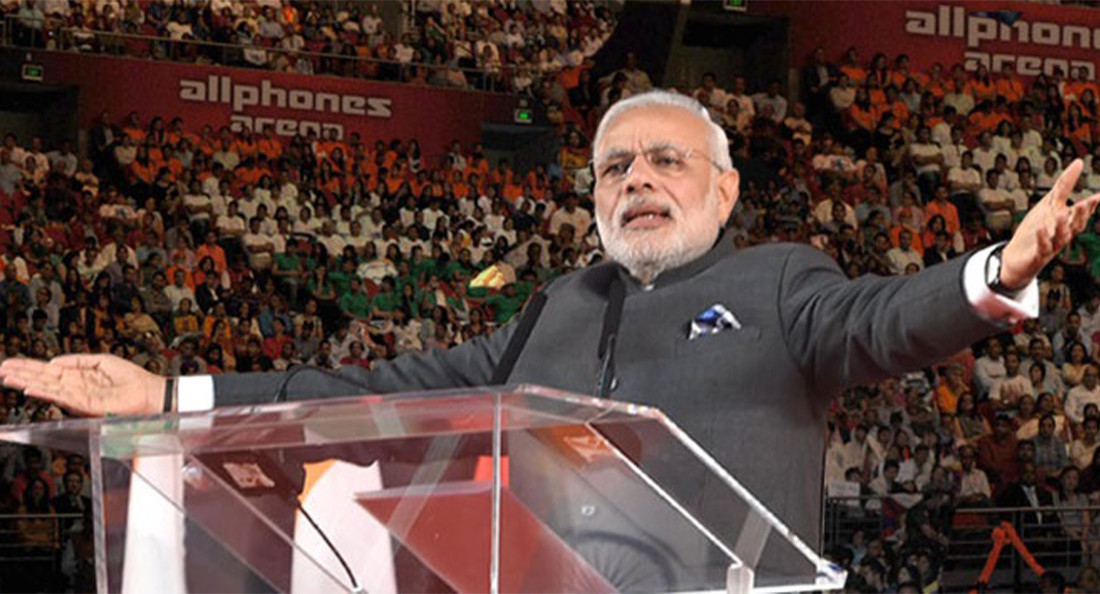We need to talk about Modi
Foreigner affairs
India’s Modi administration may not fit the exact mould of fascism, but at the very least, he is getting dangerously close to it.
Prime minister Narendra Modi is a Hindu nationalist who was once banned from the United States for his alleged involvement in the 2002 riots in the state of Gujarat, where a thousand Muslims were killed, while he was chief Minister. He is now one of the most popular prime ministers of the modern Indian era.
Modi is an ardent member of the Rashtriya Swayamsevak Sangh, or RSS for short, a Hindu ethnocentric extremist paramilitary group. Its founding father, M.S. Golwalkar, once explicitly praised the Third Reich’s attempts to preserve the “purity” of the German people (encouraging India’s Hindu majority to follow suit). Modi’s policies embody these ideologies.
Whether it is dissolving the constitutional rights of the people of Kashmir, a historically disputed territory with a majority Muslim population, or denying foreigners of the Islamic faith citizenship in India, Modi has taken historical Hindu-Muslim tensions and propagated them not only with rhetoric, but also with brutal policy.
Modi’s policies are not exclusively stoking the already-inflamed tensions between Hindu and Muslim communities, for other ethnic minorities in India are feeling his wrath, as well. For example, the Dalits (the lowest members of the Hindu caste system) are being denied the opportunities to even express their grievances. More recently, Sikh farmers are up in arms due to the various agricultural laws the Modi administration has introduced (such as abolishing a minimum price for crops) that will leave them in financial ruin.
It is also common for his ferocious followers to attack Muslim majority communities or desecrate Muslim places of worship as a means to make political statements, leaving communities ravished and unrecognizable. In other words, Modi embodies fascistic hatred, but what makes him especially dangerous is his political competence.
Modi is obviously an important figure. Here in Manitoba, there is a large South Asian community (38,340 people, as of 2016). As someone from the Hindu faction, I can say his popularity is immense.
Anti-Muslim sentiment among Hindus has been a problem for a long time. Many older members of the South Asian community in Manitoba remember violence in the times of partition, when both Hindus and Muslims were victims of imperial powers and political propaganda.
Such propaganda seems to be re-established with a poignant fervor, with Modi’s government cracking down on press freedom and notoriously censoring anti-Modi segments, while propagating anti-Muslim sentiments. So, every time an Indian-Manitoban wants word of the goings-on back home, they are berated with harsh racial rhetoric and sensationalism.
The obvious question to ask now is: what can be done about this? Unfortunately, the answer is unclear.
Though I can’t offer remediation for a dire situation, I can offer a word of caution: Hindu communities are insular, and the rhetoric being thrown our way is dangerous. At some point, we’re going to have to discuss solutions to repair the damaged relationship we have with our fellow Muslim compatriots, though how this may be achieved is not yet clear.
Vinay Sharma is a third-year philosophy student. His main interests are political philosophy and the philosophy of language.
Published in Volume 75, Number 12 of The Uniter (December 3, 2020)







